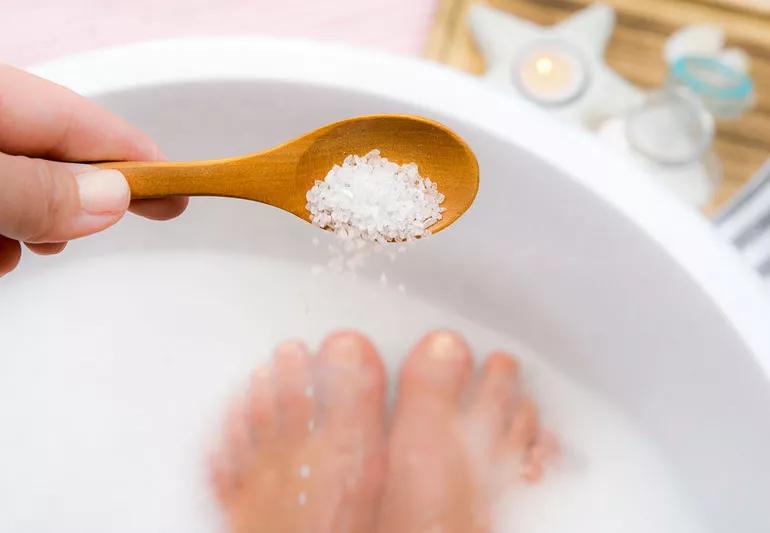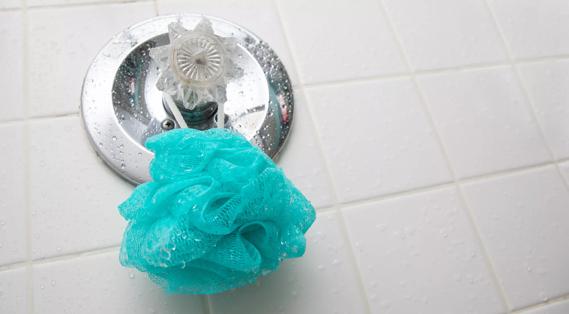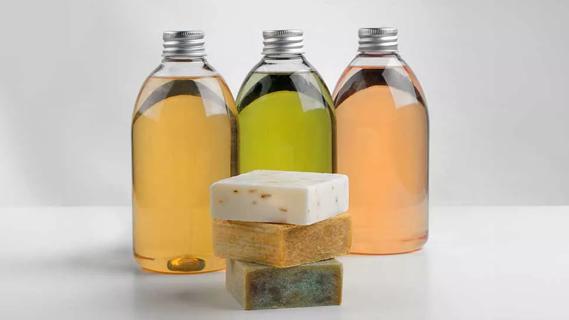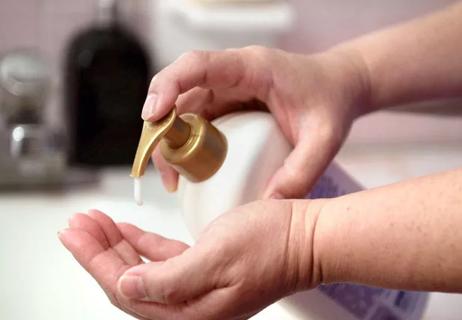Advertisement
Take a soak to soothe sore muscles

Integrative medicine is a branch of healthcare that focuses on treating both the mind and body and exploring how they are closely connected. Some of the treatments and practices used by integrative medicine’s holistic approach include acupuncture, hypnotherapy and reiki.
Advertisement
Cleveland Clinic is a non-profit academic medical center. Advertising on our site helps support our mission. We do not endorse non-Cleveland Clinic products or services. Policy
Another tool that integrative medical specialists often recommend for its physical and mental health benefits is Epsom salt. While no clinical trials have confirmed the benefits of Epsom salt, many healthcare providers promote it for its ease of use, reasonable price and minimally invasive delivery. To learn more, we turn to integrative medicine specialist Naoki Umeda, MD.
Epsom salt is one of many naturally occurring mineral salts, a compound of magnesium and sulfate in rock-like formations. The name “Epsom salt” is a nod to the town of Epsom, located a stone’s throw away from London in England, where the salt was supposedly discovered about 400 years ago.
While it resembles table salt, it has a very bitter taste and isn’t really meant to be consumed. Most users dissolve it in a warm bath for a soak with the hope of relieving stress or sore muscles.
The idea is that when you pour Epsom salt into warm water, it dissolves the magnesium and sulfate and allows it to be absorbed into your body through your skin. Centuries of user testimonials claim wonderful benefits from using Epsom salt this way.
Scientific research, however, isn’t quite as vocal in its support. There are no definitive studies showing that magnesium can be absorbed through your skin in sufficient amounts to address potential deficiencies of the mineral. And what research has been done offers skepticism.
Still, integrative medical experts commonly recommend Epsom salt to people with muscle pain and mental stress. If you want to try it for yourself, the process is pretty simple and light in risk.
When purchasing Epsom salt, look to buy a product that’s 100% magnesium sulfate.
Despite the lack of available scientific data, tales about the healing power of Epsom salt have been circulating for centuries, says Dr. Umeda. Users typically dissolve Epsom salt in bath water to release magnesium and sulfate ions and reap the benefits.
While some experts suggest that stress relief comes from the warm bath itself, others believe Epsom salt helps stabilize mood and relieve stress, anxiety and depression. In fact, some claim that taking magnesium increases serotonin (happiness or relaxation hormone) production in your brain.
Epsom salt is used to relax muscles and relieve pain in the shoulders, neck, back and skull. For example, by relaxing the muscles surrounding your skull, the magnesium in Epsom salt may help release a headache or migraine. This benefit can also aid sore muscles in the recovery period after a workout.
Some experts also think that magnesium is good for reducing inflammation in internal organs. This may help reduce the risk of cardiovascular disease and improve digestion/bowel movement.
Generally, there aren’t any — but there are some instances where caution is advised, says Dr. Umeda. Epsom salt baths aren’t recommended for people with:
Advertisement
Additionally, drinking Epsom salt — as some online “detox” plans tout — can cause serious side effects such as severe diarrhea, cautions Dr. Umeda. There aren’t any studies proving that taking Epsom salt orally is safe or beneficial. Taking it orally can lead to sudden and dramatic changes in bowel behavior; this, in turn, can be very dangerous and cause dehydration and discomfort.
If you’re curious about Epsom salt baths or have any concerns, check with your healthcare provider before using Epsom salts.
Advertisement
Learn more about our editorial process.
Advertisement

This puffy shower accessory can become lodged with skin cells (and other gross things), so make sure you dry it daily and clean it once a week

Care for your ears by steering clear of cotton swabs, taking precautions in loud settings and seeking medical help when needed

Leaving footwear on invites germs, bacteria, toxins and other unwanted guests into your home

This olive oil-based soap is generally mild and safe when diluted

It’s a wash — when you bathe is a personal preference

Try turning the heat down on the water and opting for a moisturizing soap

Research doesn’t show a link between the personal hygiene product and breast cancer

Technique matters — and research suggests most of us still aren’t doing it right

Your metabolism may torch 1,300 to 2,000 calories daily with no activity

A gentle touch in all the right places may help drain your sinuses